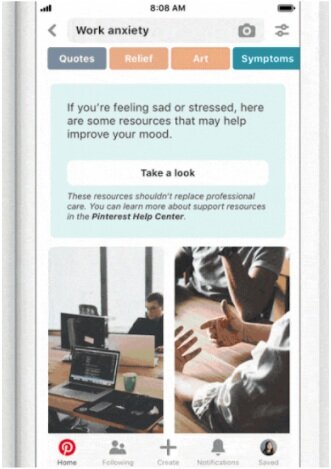Getting your body social media proof!
A brief scroll across socials, will reveal a plethora of content of people who appear to be near-perfect and faultless….but is that really the case?
Now, imagine how being exposed to this daily can have a negative impact on many individuals' self-perception.
Users on social media are constantly bombarded with nothing but unattainable standards, as social media shows one thing whereas real life is raw, unfiltered, and imperfect.
Society has been led astray and many are falling for the trap, chasing that ‘social media image lifestyle’ & perfection. Which, to us, causes nothing but deeper issues; as the old saying goes…“nobody/no-one can be perfect.”
With all this in mind - it comes as no surprise that studies link social media platforms to the root cause of a range of body image issues, including body dissatisfaction and self-objectification amongst society today, especially the younger gens.
A recent study by GlobalWebIndex (2020) revealed, millennials in Europe were spending an average of 2 hours and 22 minutes per day on social networks, with Gen Zs coming in at 3 hours and 6 minutes.
University of Pittsburgh, 2020 found a correlation between time spent scrolling through social media apps and negative body image feedback.
“Those who had spent more time on social media had 2.2 times the risk of reporting eating and body image concerns, compared to their peers who spent less time on social media. ”
These figures tell us one thing clearly: Social media (if consumed the wrong way) has the potential cause harmful side-effects, & could this be down to the failure of the platforms to protect us from being constantly & consistently bombarded with unrealistic expectations.
…..with this situation rightfully receiving the awareness (…& backlash) some would say it deserves… Social Media giants are responding accordingly with some of them already implementing some initiatives aimed at fighting this issue.
Take Pinterest for example, they introduced a collection of emotional well-being activities people can do right from the app when/if they’re feeling stressed, anxious or sad. Each practice provides an engaging approach for people to try to enhance their mood––from relaxation techniques to self-compassion activities.
On top of that, Pinterest recently banned any weight loss-related ads, as these types of ads glamourise or denigrate certain body types; which CLEARLY can carry a negative effect on how Pinterest users go on to see their bodies.
Instagram partnered with The Jed Foundation to create a tool book entitled “Pressure to be perfect” (we have included the toolkit here for you!) that aims at shifting their user’s mindset from comparing themselves with others to one where they are thoughtfully sharing themselves with others, so the time they spend on Instagram is more intentional and rewarding.
TikTok
It’s not just body image concerns that are brought along via our increased consumption of Social media, a separate study from the University of Pittsburgh School of Medicine showed that the more time young adults spent on social media, the more likely they were to have problems sleeping and report symptoms of depression.
Tiktok are doing what they can & have shared mental health advice that their community can refer to, & if you or anyone you know is feeling down - you check out the list of advice here!
What more is being done?
It doesn’t stop there, although social media giants are doing their thing… Some countries have gone has far as addressing this issue through legislation!
With Norway recently implementing a new law that requires advertisers and influencers to disclose when images had been altered; an amendment to the 2009 Marketing and Control Act.
A recent article from Vice, lists some of the labelling the influencers have to state "enlarged lips, narrow waists, and exaggerated muscles," among other things. Other countries such as the United Kingdom and France, have enforced similar regulations.
Influencers themselves seem to already be on board (…well some) and are taking the responsibility to raise more awareness on the matter.
Take a look at Victoria’s Secret angel Sara Sampaio recently speaking on the issues of body image concerns.
Sara Sampaio on Body Positivity, and how social media pressures us to look a certain way
Even photographers with a huge audience are making sure that their audience knows that all of their pictures are altered and retouched:
The question that remains to be answered is: are these initiatives enough?
The brief answer to that matter is: These initiatives are a good start, but they are not enough, and most importantly they cannot substitute parental supervision over young children.
On that note, If you’re a parent, you can find some tips and resources (via this link here) on how to prevent the harmful effect of social media on your young children; let’s help protect our future generations from the dark side of social media without having to take them away from the the wonderful world that can be social media.




